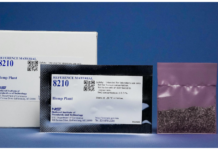“State-legal cannabis businesses are denied equal treatment under 280E.” So said United States Rep. Earl Blumenauer (D-OR) in mid-April as he introduced the bipartisan Small Business Tax Equity Act of 2023, which seeks to exempt state-licensed cannabis businesses from Internal Revenue Code Section 280E. The law, enacted in 1982, denies legal cannabis businesses most of the ordinary and necessary tax deductions other businesses enjoy. It resulted from a bizarre court battle.
In 1975, Jeffrey Edmondson of Minneapolis, Minnesota, was nabbed for possessing cocaine with intent to distribute. Adding insult to injury, when the Internal Revenue Service got wind of the arrest, the agency saddled him with $17,000 in back taxes because he failed to report his illicit income.
Apparently not one to twiddle his thumbs while awaiting trial, Edmondson put his time to good use and reconstructed an extraordinarily detailed profit-and-loss statement for the previous year, then filed a federal tax return for 1974—months late, but thorough. Under “cost of goods sold” on his itemized return, he listed $105,300 in the form of 1.1 million amphetamine tablets, 100 pounds of marijuana, and thirteen ounces of cocaine. He additionally claimed “ordinary and necessary” business expenses including automobile mileage, airfare, a scale to weigh product, long-distance telephone calls, packaging costs, and a percentage of his rent for the portion of his home he used for his … ahem … business. Altogether, Edmondson claimed about $110,000 in deductions.
Not surprisingly, the IRS took a dim view of the tax strategy and denied the deductions. So Edmondson sued. And, after serving four years on the drug charge, he won.
In 1981, Judge William A. Goffe of the United States Tax Court found “petitioner Jeffrey Edmondson was self-employed in the trade or business of selling amphetamines, cocaine, and marijuana…” and allowed most of the deductions to stand, although he also let stand the IRS’s late-filing penalty.
Congress was outraged and the following year wrote 280E into the federal tax code to prevent other illicit drug dealers from following Edmondson’s example. The section disallows deduction of any expenses incurred “in carrying on any trade or business if such trade or business consists of trafficking in controlled substances.” Today, the regulation contributes to a crippling tax burden of up to 70 percent for an industry that, while still not federally legal, employed about 430,000 people and generated an estimated $30 billion in 2022.
Nowadays, the outrage flows in the opposite direction: from state-legal “traffickers in controlled substances” toward Congress. Let’s hope members of the House are paying attention and will give the the Small Business Tax Equity Act, cosponsored by Reps. David Joyce (R-OH), Barbara Lee (D-CA), and Nancy Mace (R-SC), the attention it deserves.










[…] 280E, added to the tax code in 1982, disallows deduction of any expenses incurred “in carrying on any trade or business if such trade […]